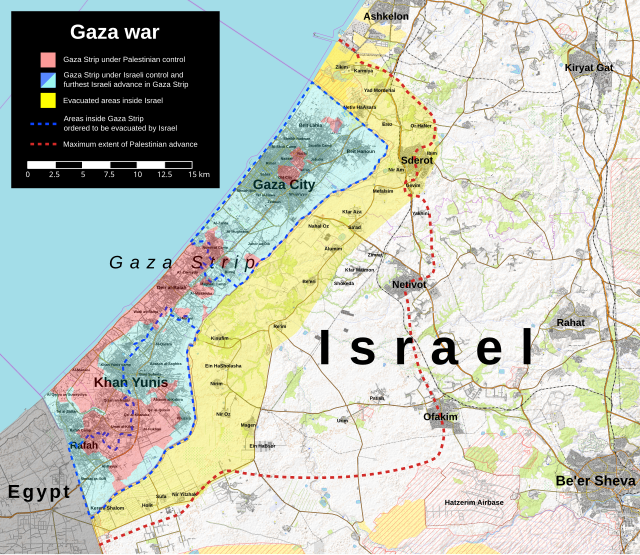February 4, 2026
Hadassah Welcomes Its Fourth Group of Future Hadassah Leaders The 11 women from 7 states are the latest to be chosen for Hadassah’s Evolve Leadership Fellows program NEW YORK, NY — Hadassah, The Women’s Zionist Organization of America , is proud to announce its new class of Evolve Leadership Fellows . The 11 women comprise the fourth group chosen for the two-year leadership development program, which the organization launched in 2022 to identify and nurture the next generation of Hadassah leaders. The fellows, a diverse group of women in their 20s, 30s, and 40s from California, Connecticut, Florida, Illinois, Maine, Pennsylvania, and Texas, i nclude professionals working in cybersecurity, education, healthcare, social work, and the arts as well as several part and full-time homemakers. As befits a group participating in a leadership development program run by an organization with a strong focus on healthcare and a public hospital system, Jerusalem’s Hadassah Medical Organization , among the fellows’ specialties are academic coaching for neurodivergent children, therapy for autistic children, healthcare consulting, donor recruitment for blood banks, and locating housing for doctors working in underserved communities. Carol Ann Schwartz, Hadassah National President , welcomed the new fellows, saying she was "delighted to see younger Jewish women eager to take up the mantle of leadership to help advance Hadassah’s mission." During the first year of the Evolve Leadership Fellows program, the fellows meet with Hadassah's national leaders and learn about the organization’s programs and initiatives in Israel and the US. They also participate in a series of workshops led by Hadassah's senior management team, which focus on developing the skills needed to inspire and lead their fellow Hadassah members. In the second year, each fellow is paired with a Hadassah mentor and asked to take on a leadership role in her local Hadassah chapter or region based on the community’s needs and interests. Among the roles taken on by past fellows are the presidency of their Hadassah region, representing their regions at meetings of the World Zionist Congress and the Conference of Presidents of Major Jewish Organizations, and chairing a Hadassah Evolve symposium. The Evolve Leadership Fellows program is part of Evolve Hadassah: The Next Generation , a Hadassah initiative that seeks to build community among younger members and empower them to take action so that Hadassah’s mission remains life-changing for generations to come. About Hadassah, The Women’s Zionist Organization of America: Hadassah, The Women’s Zionist Organization of America, is the largest Jewish women’s organization in the United States. With nearly 300,000 members, donors, and supporters, Hadassah brings women together to effect change on such critical issues as ensuring Israel’s security, combating antisemitism, and promoting women’s health care. Through its Jerusalem-based medical center, the Hadassah Medical Organization , Hadassah helps support exemplary care for more than 1 million people every year as well as world-renowned medical research. Hadassah’s hospitals serve without regard to race, religion, or nationality and earned a Nobel Peace Prize nomination in 2005 for building bridges to peace through medicine. Hadassah also supports two youth villages that set vulnerable youth in Israel on the path to a successful future. Visit hadassah.org and follow Hadassah on Facebook , Instagram , LinkedIn , and Threads . Carly Wittman has been selected as a member of Hadassah’s newest cohort of Evolve Leadership Fellows. Carly, a second-generation Hadassah member, was encouraged to apply to the Fellows program by longtime Hadassah member Leslie Gonzalez, who knew Carly wanted to develop leadership skills, was committed to Israel, and was active in the Fellows’ umbrella group, Evolve Hadassah: The Next Generation . Carly has been involved in Jewish life since she was young. She attended Congregation Beth Israel in Old Orchard Beach, the Hebrew school of Congregation Etz Chaim in Biddeford, and Jewish summer camps in Portland (Camp Gan Israel) and Windham (the JCA’s Center Day Camp). In her senior year at the University of Maine, Orono, she was Hillel president. Today, in addition to her activity with Hadassah, she sits on the JCA’s Intercultural and Government Advocacy committees and is proud to have testified at the Maine State House against a BDS bill. She hopes to form Maine’s first Hadassah chapter with the help of the JCA’s Young Jewish Professionals group, of which she’s also a member. For now, she’s happy to be part of New England’s Hadassah Northeast chapter, joining meetings by Zoom and sometimes traveling to Boston for events. Carly is a senior research analyst with Portland’s Crescendo Consulting Group , which works to improve life in the communities it serves by advising local healthcare organizations, public health departments, and tribal nations. It’s another way in which her interests complement the mission of Hadassah, which operates a public hospital system in Israel.








